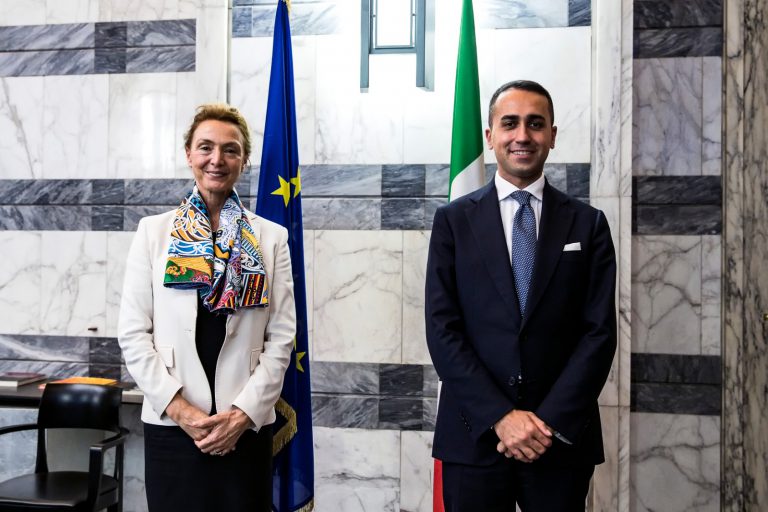Minister Emma Bonino’s International Criminal Justice Day message
Today, 17 July, we celebrate International Criminal Justice Day, dedicated to a fundamental tool for the promotion of legality, defence of human rights and punishment of criminals who undermine peaceful co-existence among peoples. On 17 July 1998 the International Criminal Court statute was adopted in Rome: an event that many compared in historic importance to the approval of the United Nations Charter.
Somalia, Rwanda, Bosnia and now Syria: intolerance and violence in the world are showing no signs of diminishing. Nevertheless, with the institution of this Court, the international community declared its rejection for all forms of indifference toward atrocities such as genocide, war crimes and crimes against humanity, and all forms of impunity for those responsible for them.
There can be no peace without acknowledgement of the serious guilt of these criminals and their condemnation: in a word, without justice for the victims. The wounds of the past must be treated in order to avoid their festering into destabilisation. The exposure and prosecution of the atrocities committed are the pre-requisite for making them a thing of the past. For that reason, the International Criminal Court is a tool for peace and preventive diplomacy. In many cases, the pursuit of the truth has not only brought justice to the victims but has also generated a sort of collective catharsis. The Court’s deterrent role therefore serves humanity by averting the recurrence of similar forms of brutality, contributing to firmly implanting the principle of legality and to placing the principle of responsibility to protect above the culture of impunity.
Over the years, the Court has acquired increased authority and credibility. A full 122 countries have now ratified its statute. The Rome Statute Review Conference, held in Kampala in 2012, led then to the adoption of some major amendments regarding war crimes and the crime of aggression that made it possible to amplify the Statute’s sphere of application. It is up to all of us, States Parties, to continue with conviction to ensure the Court the political and financial support it needs. Without the active collaboration of the States, without the common commitment and determination to make the Court work, the conquest of the first segment of international criminal jurisdiction would be emptied of any content whatsoever.
Italy supported the institution of the Court, immediately adopting the law ratifying the Rome Statute, but took a decade to adapt domestic legislation to it and to put itself in a position to fully cooperate with the Court. When it comes to human rights we must never lower our guard. I would therefore like to take this opportunitynot only to celebrate, but also to renew the support of the Italian institutions and society for international criminal justice.
It was in this spirit that I gave instructions for the flag of the International Criminal Court to be flown today at the Ministry of Foreign Affairs alongside those of Italy and the European Union



